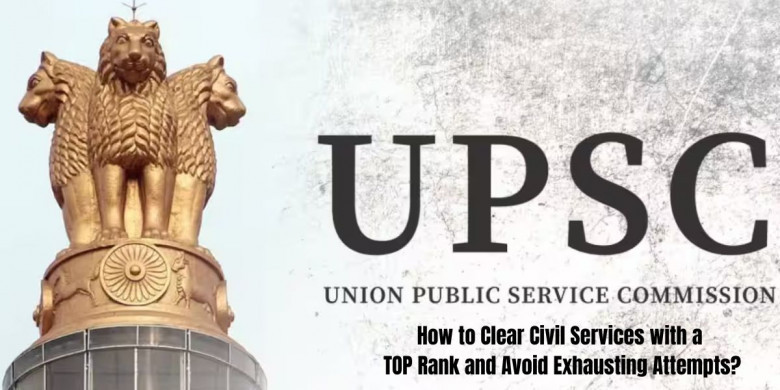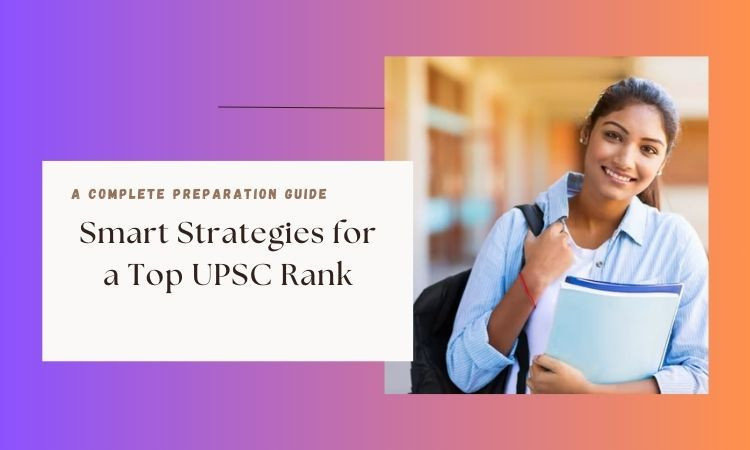views
Achieve a Top UPSC Rank Without Wasting Attempts
Every year, thousands of UPSC aspirants dream of clearing the prestigious Civil Services Examination (CSE). However, from the pool of thousands of hopefuls, only a few seem to clear the exam in a single attempt and with the highest ranks. How do they do this? This answer neatly folds into strategic planning, a keen understanding of one’s capabilities, and focused determination. If you are someone who aims to be in the top ranks without exhausting all the attempts, this guide by Vajirao IAS Institute will help you immensely.
- Understand the Exam Inside-Out
Before any preparations, analyse the exam, which is divided into three stages:
- Prelims (consists of objective questions- GS and CSAT)
- Mains (comprising 9 descriptive papers)
- Interview (which is a personality test)
Each stage demands distinct skill sets. For the Prelims, the focus is on speed and accuracy; Mains require comprehensive knowledge and eloquent expression, and the Interview assesses your personality. Understand and outline your approach accordingly for each phase.

2. Time It Right
Some applicants dive straight after graduation, and some others wait until they feel “ready.” Both approaches may work, but the perfect scenario is when you have the following:
Strong understanding of fundamental concepts of subjects like Polity, History, Geography, and Economics, among others.
- A purpose to join the civil services.
- At least 12-18 months of uninterrupted time for focused preparation.
If you begin much too early, the chances of wasting attempts is high. Beginning too late is just going to add too much pressure. Thus, timing it right is essential. You can also join a coaching institute with a traditional set-up or an Online coaching for IAS preparation to examine your readiness.
3. Build a Rock-Solid Foundation
Begin with NCERTs. They might seem simplistic, but no other material offers such clarity. Ensure to follow NCERTs from 6 to 12 for History, Geography, Polity, Economics, and Science. Once you are done, proceed to other standard reference books like
- Polity by Laxmikant
- Modern History by Spectrum
- Geography by GC Leong
Economics by Ramesh Singh (or summaries of the budget and Economic Survey)
Do not fall into the trap of accumulating 10 books for each subject. Cut down your sources, revise them multiple times instead.
4. Current Affairs
A common blunder made by candidates is going through every newspaper and magazine. Instead, pick one trustworthy newspaper, be it The Hindu or The Indian Express. Subscribe to a single monthly current affairs compilation, for example, Vision, Yojana, or Insights.
Learn to focus on events rather than news. Grasp “why” and “how” something happened. Connect current affairs to static subjects; for instance, use a news item on electoral reforms to enhance your Polity answers.
5. Practice is Everything
Top performers, unlike the rest, do not just read; actually, they put into practice what has been taught. Start with answer writing well before the Mains stage, as early as you can. Top IAS Coaching in Delhi, such as Vajirao IAS Academy, offers daily answer-writing tasks. Enrol in a test series after you have gone through the syllabus structure at least once, whether online or in person.
Before the actual exam, try to complete at least 50-80 mock tests for UPSC Prelims. Also, learn how to eliminate wrong answers intelligently, make educated guesses, and manage your time effectively.
6. Choose the Right Optional
Optional subjects can increase or lower your rank significantly. Your parameters to make the selection should include, level of enthusiasm and knowledge in the subject, access to mentorship and other relevant materials, and the subject relation with General Studies.
Subjects like Political Science and International relations, Anthropology, Sociology, and Geography resonate with much of General Studies and are popular. However, make sure you follow what is best for you and not what is best for most people.
7. Personalised Strategy
Every student is unique, hence there is no “one size fits all” strategy. While Topper's strategies are useful for gathering ideas, it is essential to modify them for your use. Each learner has a distinctive background, set of strengths and weaknesses, available time, and preferred learning style, so make sure to tailor your plan accordingly.
Make sure to monitor your progress every week. Track what works and what does not. Do not hold back when adjusting your plan.
8. Mental Strength and Discipline
Preparing for UPSC is like going through a marathon. Burnout, anxiety, and self-doubt are a reality. Consider incorporating the following into your preparation:
-Studying at set times that work best for you (remember quality over volume)
-Set time slots for revision
-Include Physical activity in your routine (walking for as short as half an hour is beneficial)
9. Use Attempts Wisely
Every mock has its unique contextual importance and a selected target. Attempting ‘mocks’ for the sake of motivation will eventually become counterintuitive to your goals. Before Prelims ask yourself ask yourself the following questions:
- Am I scoring over 110 in the mocks consistently?
- Does my CSAT stand strong?
- Have I revised the syllabus at least 3–4 times?
If these questions have one answer, that is 'no', then do not waste your attempts waiting is a wiser option.
10. Final Stretch – Prelims to Interview
After the Prelims, there is no need to wait for results – begin Mains preparation straight away. The period of 3-4 months between Prelims and Mains is highly important. Start writing answers daily during this period, do revisions for optional papers, and focus on mastering the essay.
In case of the Interview, you need to prepare your DAF (Detailed Application Form). Be authentic and up-to-date with current news, and attend multiple mock interviews.
Final Thoughts
Achieving success in the Civil Services Exam with hopes of being in the top ranks and from a few attempts is not an attempted genius move; rather, it requires strategic planning, focus, and consistency. Eliminate distractions, understand your ‘why’, and make each attempt count. It is crucial to remember that it is not how long you prepare, but how well you prepare. Thus, when preparing, make sure to always take it seriously, and above all else, discipline yourself so that each attempt counts.















Comments
0 comment